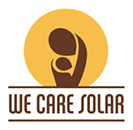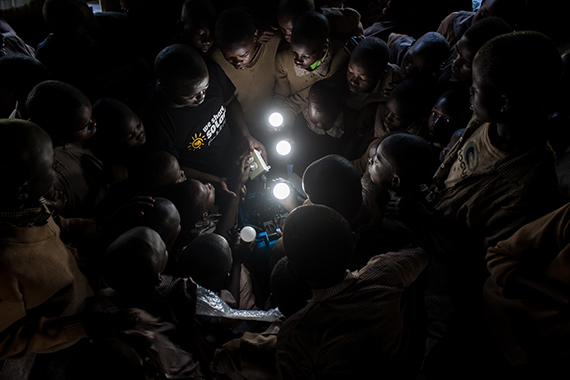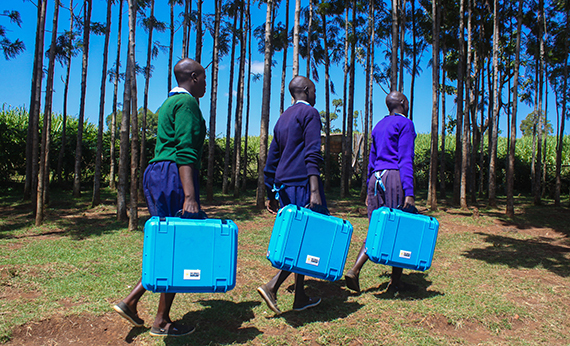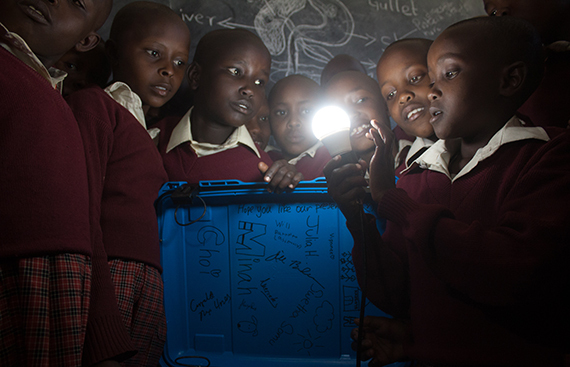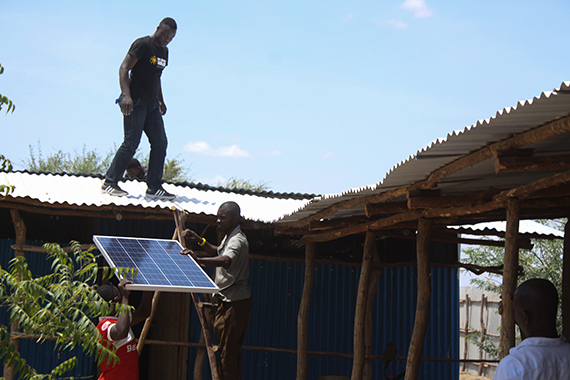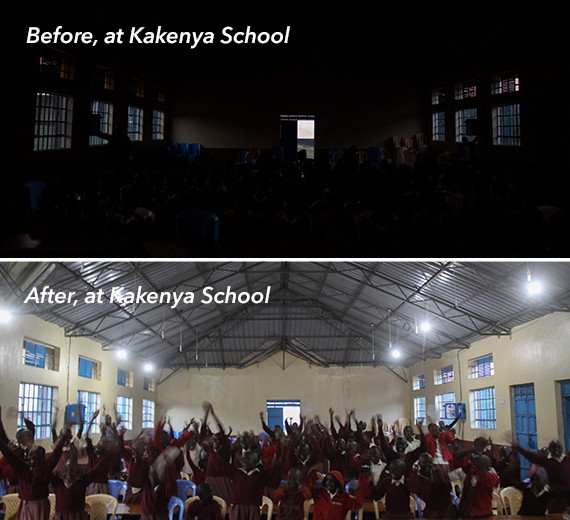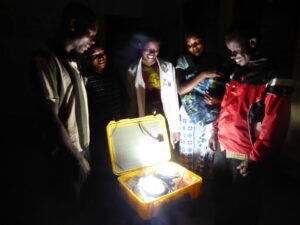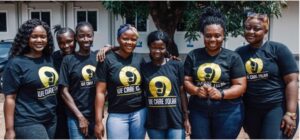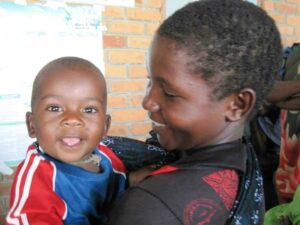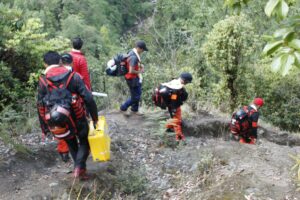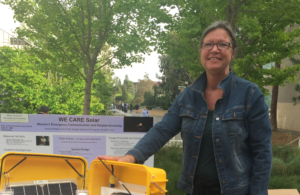Imagine that you are studying for one of the most important exams of your life. Your score will determine if you go on to secondary school and whether you can receive financial assistance. Now picture trying to study for this exam night after night….in darkness. If you have a working flashlight with batteries or candles, consider yourself fortunate. If not, your day ends the moment the sun goes down.
Photo credit: Brian Inganga
This situation is pervasive around the world: globally, more than 1 billion people lack access to modern electricity.
We Share Solar aims to alleviate this problem by providing clean, sustainable solar light and power for rural schools and community spaces in East Africa. We Share Solar is the educational program of the non-profit organization We Care Solar. Our experiential learning program enables American youth to link technology with humanitarian service through building We Share Solar Suitcases—high-quality solar electric systems assembled as part of a project-based learning STEM curriculum. Student-built Solar Suitcases are donated to youth in energy-scarce regions of the world and installed in schools and community centers. Students are exposed to engineering with a purpose and develop a sense of themselves as global citizens. We work with passionate partners who identify sites for our life-changing technology. We Share Solar has enjoyed rich collaborations with Segal Family Foundation grantees, helping us deliver sustainable light and power to underserved youth.
Photo credit: Brian Inganga
We Share Solar and Kakenya Center for Excellence worked together this past August to install ten Solar Suitcases in three schools across the rural Kilgoris region of Kenya. We first met founder Kakenya Ntaiya when both of our organizations were honored through CNN Heroes. Kakenya marveled at the We Share Solar Suitcase program and described the need for reliable solar lighting at rural schools. Kakenya Center worked closely with We Share to facilitate the Solar Suitcase donations and placements not just at their own all-girls boarding school campus, but also at two neighboring public primary schools.
The three schools that received Solar Suitcases now have reliable classroom lighting for early morning and evening study sessions—especially important for students preparing for high school entrance exams. At Kakenya School, Solar Suitcases now light up a girls’ dormitory serving over 180 students, four classrooms, and a multipurpose dining hall. In addition, the Solar Suitcases provide charging for mobile phones and electronic devices such as tablets, laptops, or e-readers.
Photo credit: Brian Inganga
Although Kakenya School and neighboring Enoosaen Primary School are both connected to the power grid, the power is unreliable and frequently out for days at a time. This reality was highlighted on the day after we installed two Solar Suitcases at Kakenya School. The students were taking their customary beginning-of-term exam when a big thunderstorm knocked out power. The teachers moved the girls from darkened classrooms into the solar-lit dining hall, allowing students to work under bright light from the eight LED lamps we had installed.At nearby Enoosaen and Mapashi schools, students wrote letters of appreciation for their new Solar Suitcases. Their letters tell of days when they would bring their desks outside for lessons because the classrooms were too dark, or use costly candles to aid in their early morning study. During our installation day, the 800-student school was abuzz with excitement, and students crowded around our program manager who read aloud from our new children’s book about solar energy, “The Power of the Sun.”
Photo credit: Brian Inganga
The need for reliable institutional lighting extends beyond schools in East Africa. In September, We Share Solar installed its first Solar Suitcase in a refugee camp through a partnership with Segal grantee Solidarity & Advocacy with Vulnerable Individuals in Crisis (SAVIC). This refugee-run organization promotes healthy, empowered communities by enhancing access to health care and education. The first Solar Suitcase in Kakuma Camp is helping the SAVIC team stay connected by charging mobile phones and Internet modems. The LED lights are improving nighttime security for refugee children. Soon, SAVIC hopes to use the Solar Suitcase to provide a safe place for evening study sessions. Photojournalist Brian Inganga remarked that although he has grown up in Kenya and worked in very low resourced areas, “my experience at the refugee camp made me realize the importance of freedom and light.”
These programs are just the beginning. The demand for solar electricity to improve education possibilities in rural Kenya is high. We Share Solar is already planning additional installations in 2017 in partnership with the teams at Kakenya Center and SAVIC. We are inspired by the impact of a Solar Suitcase in places where it is most needed and highly valued as a community resource. Our programs in East Africa are growing—72 Solar Suitcases are already benefiting over 11,000 people in recipient communities. We attribute this success to passionate partners who are invested in improving opportunities for youth in their own communities.
Photo credit: Brian Inganga
This article was written by Wendy Cross and Laura Stachel, and was reprinted from Huffington Post.
